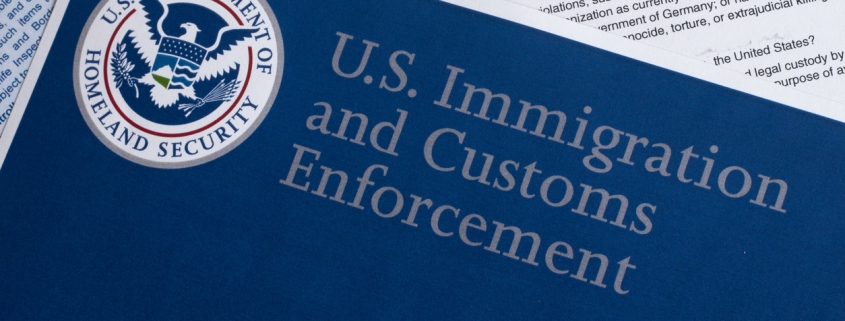Employers targeted for ICE inspections and possible prosecutions
Employers are being targeted for ICE inspections across Florida. Caught up in “worksite enforcement surges” conducted by Immigration and Customs Enforcement, employers in Florida and across the U.S. may face possible charges. The ICE claims that its primary goal is to find and prosecute employers who use or rely upon the illegal employment of immigrants not authorized to work in the U.S.
As reported by the Miami Herald, spokespersons for immigrant employment advocacy groups are voicing their concerns over the negative effects the enforcement surges will have on Florida’s economy.
A host of potential charges for employers and illegally employed workers
According to comments made by ICE’s acting director, businesses that illegally employ immigrants may face charges of money laundering, tax evasion and tax fraud. The illegally employed workers may also find themselves facing charges. The intent of the aggressive actions is to establish a “culture of compliance” within the business world. The agency expects to bring about a stricter adherence to documentation and hiring practices regarding immigrant workers.
Concerns for Florida’s hospitality and agricultural economies
The American Business Immigration Coalition’s executive director voiced concerns over the effect that the ICE’s actions will have on Florida’s hospitality and agricultural sectors. The executive director described the impending effect as “disastrous” and claims it makes no sense for Florida’s economy. The ICE, however, claims the agency’s efforts will serve to “restore integrity to the employment system” and make it difficult for unauthorized workers to find jobs.
Visas authorizing immigrants to lawfully work in the U.S.
There are a number of temporary visas that will enable individuals from other countries to obtain fixed-term employment and lawfully live and work in the U.S. The length of the fixed term depends on the individual’s country of origin and the nature of the work performed.
An employer begins the work authorization process by submitting an I-129 form to the U.S. Citizenship and Immigration Services. Specialized temporary work visas include those intended for agricultural, nonagricultural, performing arts, managerial and skilled worker positions.
About Bassey Immigration Law Center, P.A.
Bassey Immigration Law Center, P.A., led by attorney Aniefiok Bassey, provides comprehensive immigration services to individuals, families, and businesses in Florida and beyond. With over 20 years of experience, the firm assists clients with a wide range of immigration matters, from family reunification and green cards to business visas and deportation defense. The diverse, multilingual team is dedicated to supporting clients through the complex immigration process, with a special focus on citizenship, asylum, and LGBTQ+ immigration needs. They offer affordable initial consultations and are committed to delivering personalized, strategic guidance for achieving clients’ immigration goals.



